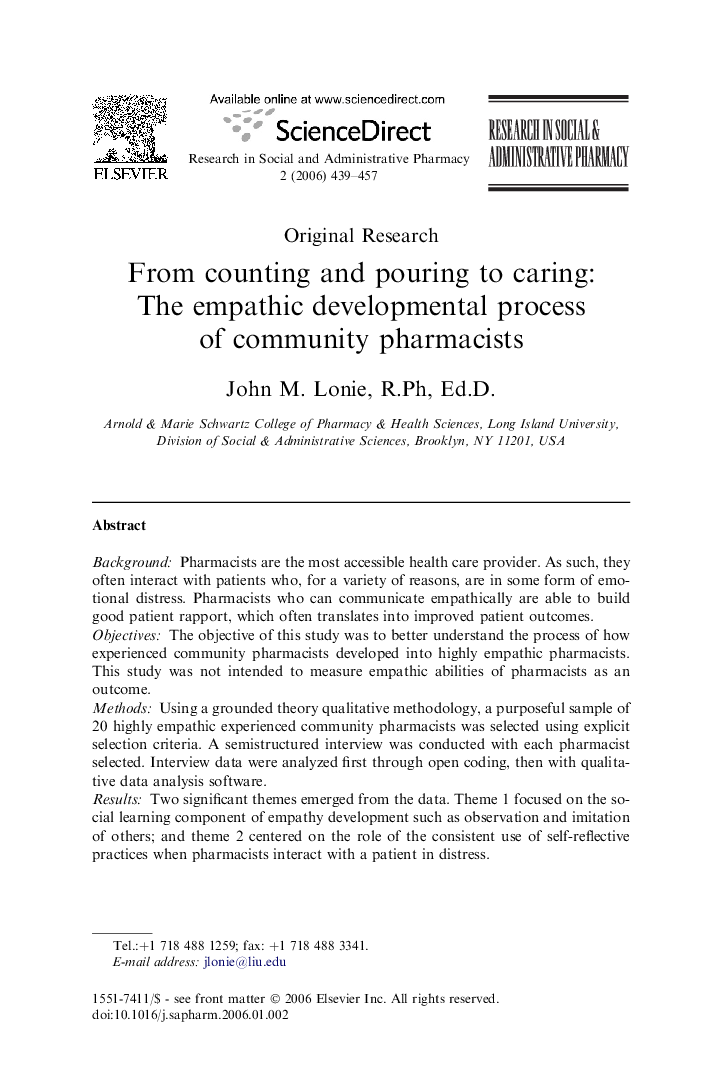| Article ID | Journal | Published Year | Pages | File Type |
|---|---|---|---|---|
| 2509184 | Research in Social and Administrative Pharmacy | 2006 | 19 Pages |
BackgroundPharmacists are the most accessible health care provider. As such, they often interact with patients who, for a variety of reasons, are in some form of emotional distress. Pharmacists who can communicate empathically are able to build good patient rapport, which often translates into improved patient outcomes.ObjectivesThe objective of this study was to better understand the process of how experienced community pharmacists developed into highly empathic pharmacists. This study was not intended to measure empathic abilities of pharmacists as an outcome.MethodsUsing a grounded theory qualitative methodology, a purposeful sample of 20 highly empathic experienced community pharmacists was selected using explicit selection criteria. A semistructured interview was conducted with each pharmacist selected. Interview data were analyzed first through open coding, then with qualitative data analysis software.ResultsTwo significant themes emerged from the data. Theme 1 focused on the social learning component of empathy development such as observation and imitation of others; and theme 2 centered on the role of the consistent use of self-reflective practices when pharmacists interact with a patient in distress.ConclusionsThe data suggest that empathic development in pharmacists is a function of social learning and reflection in action. This interplay appears to facilitate empathic responding to patients who are experiencing physical or emotional distress.
